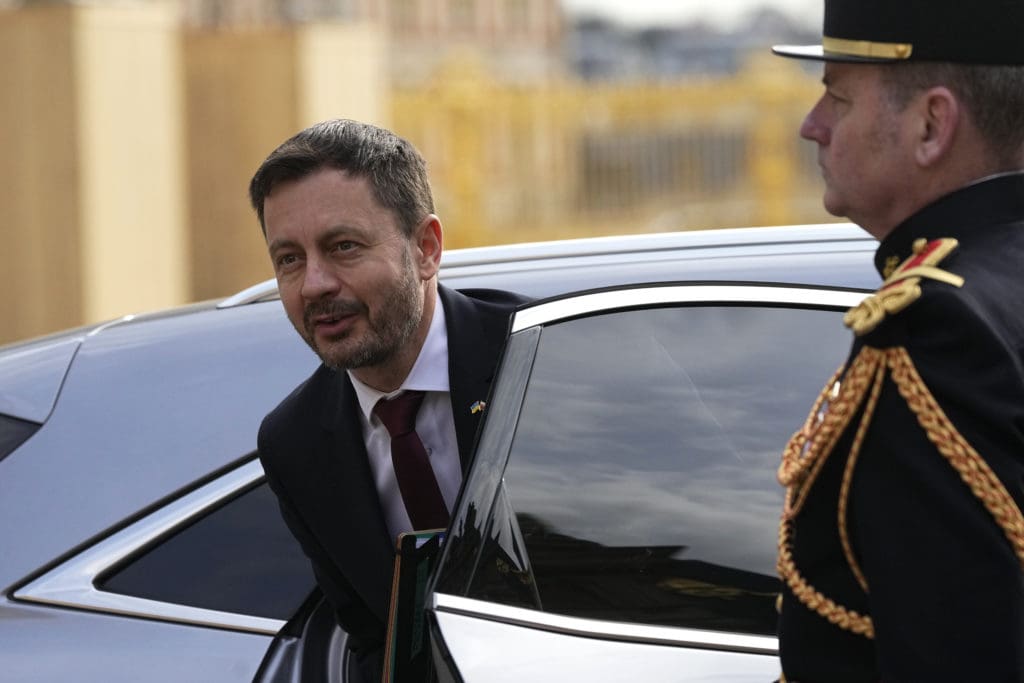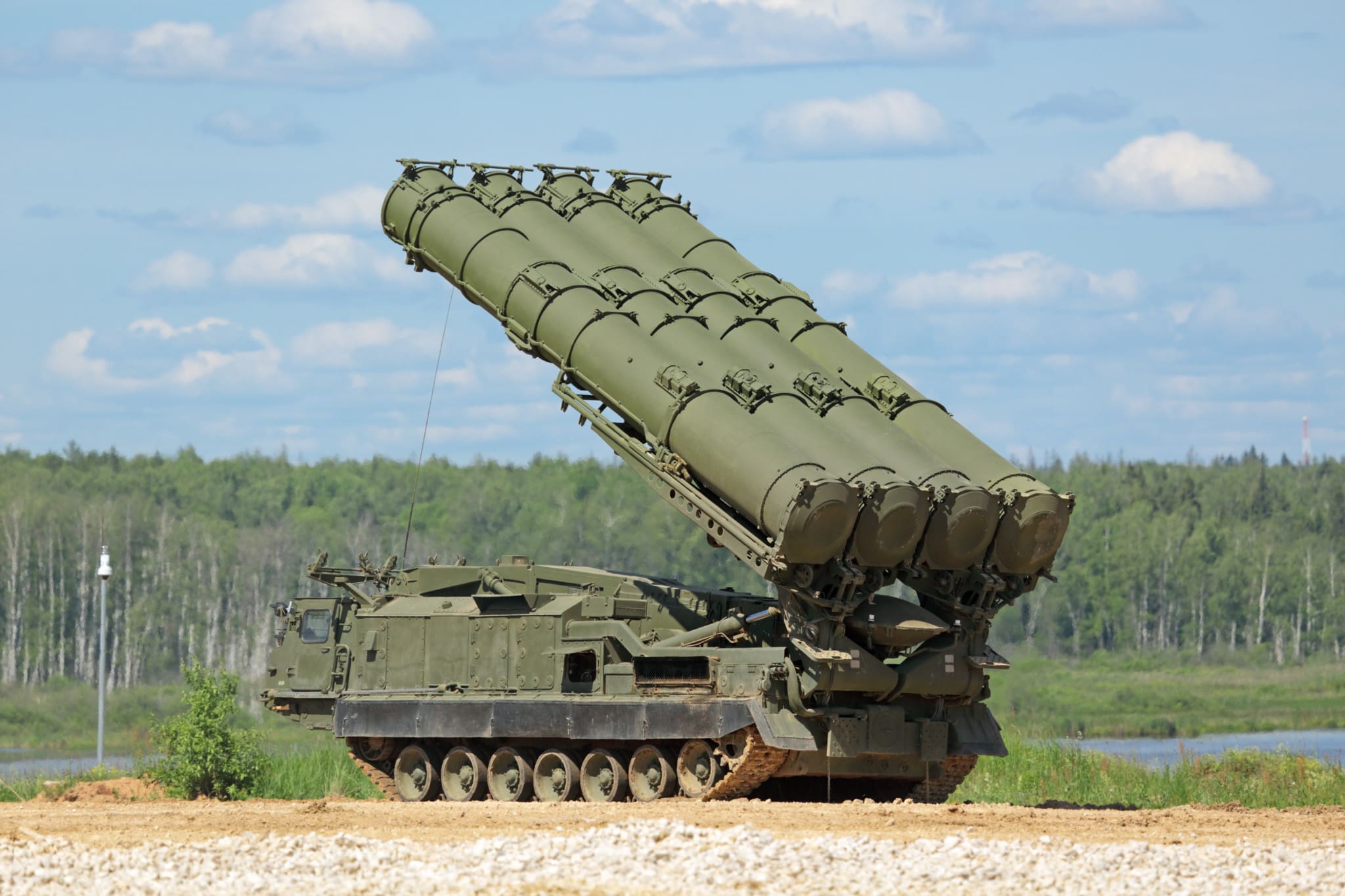While the small Eastern European country of only 5 million might be seriously lagging behind in modernizing its own armed forces, it is certainly one of the front-runners in arming its war-torn neighbor.
The Slovak government’s decision to donate its own Russian-made Soviet-era, surface-to-air missile system (SAM) to its eastern neighbor has generated praise and positive headlines internationally, despite the fact that there is very little domestic public support for dragging the small country into the war between the two giants in their neighborhood.
For weeks, liberal Slovak politicians were bending over backwards to respond to their NATO and EU allies’ calls to arm besieged Ukraine, and at times it even seemed that they were getting ahead of themselves with offers of offensive weapons, such as their own aging MIG-29 fighter jets, or the S-300 SAMs. As far as the jets were concerned, they had to be gently reminded by the U.S. that sending offensive weapons to a war zone, such as fighter planes, could lead to an escalation that tiny Slovakia could hardly handle on its own, and could potentially drag NATO into a wider conflict with Russia.
[pp id=30670]
The SAMs, however, technically regarded as defensive weapons, seemed like the ideal tool to demonstrate Slovakia’s commitment to show solidarity with the Ukrainian defenders in line with other NATO allies. However, the gesture has its detractors, with its own experts and opposition politicians reminding the country’s leadership that the country has only one battery of SAMs to defend its own airspace and strategic infrastructure, and without it, their own airspace would remain wide open to attacks.
The situation is exacerbated by a near non-existent Slovak air force and antiquated radar installations. The Defense Secretary Jaroslav Nad from the government OLANO party was therefore adamant that no such donation be made until an adequate replacement is found for the S-300. It came then as somewhat of a surprise to Slovak citizens when on Friday, April 8, media reports announced the SAMs are already on the way to Ukraine.

Prime Minister Eduard Heger (OLANO) has tried to reassure citizens that this move will not endanger the protection of Slovakia’s airspace and will not drag the country into direct confrontation with Russia either. He also pointed to an earlier agreement with NATO that Slovakia’s airspace will be protected by foreign Patriot air defense batteries, although they have still not been deployed as of yet. Questions have also emerged about the wisdom of such a hugely expensive gesture, given that the S-300 battery, consisting of four launchers, radars and dozens of missiles is worth in the region of hundreds of millions of dollars. Their replacement, in view of no other alternatives bar Israeli or American air defense systems, will cost Slovakia over a billion dollars even for a basic setup, an amount the country can hardly afford to spend on missiles.
The clandestine way in which the decision to donate the expensive weapons to Ukraine also calls into question the government’s democratic credentials, as the transfer of the weapons was made in secret and without any political agreement with opposition politicians, let alone a national referendum. Slovakia’s mainstream news outlets, some of which are now in the hands of George Soros’ media empire, have almost without exception been towing the government’s anti-Russian line and were aggressively stigmatizing any voices calling for a more balanced and careful approach in dealing with Russia. It is no surprise then that recently there have not been any opinion polls commissioned by the mainstream media to show whether such a brazen approach to a neighboring conflict has any public support. Yet, judging by the government coalition’s current ratings, the party OLANO party of the prime minister is currently tailing at 8 percent, while their liberal coalition partners SaS at 13 percent, Slovakian citizens do not seem to be onboard with the government’s military posturing.
[pp id=28492]
It is as ancient rule that if you place the security of your country into the hands of a foreign power, however benign it might be, you are relinquishing part of your sovereignty as well. The government in Bratislava is either oblivious to this old wisdom, or deems it a fair price to pay. Even Slovakia’s liberal president, Zuzana Caputová, thinks that the missiles will aid the protection of Ukrainian citizens, and thus leaving Slovakia without its own air defense system is a fair trade-off.
Yet, the leaders of the two main opposition parties (HLAS 18 percent, SMER 16 percent) do not seem to be on board with the generous gestures of the government. According to former prime minister Robert Fico, the gifting of a multi-million dollar air defense system to Ukraine is an act of war, which can have unforeseen consequences for Slovakia. He also pointed out that the S-300 battery was primarily meant to protect the country’s nuclear power stations and industrial centers.
“Caputová, along with Heger, have gifted away the only defense system the country owned, and as a replacement have accepted American Patriot missiles that are in foreign ownership, ones that we are unable to operate ourselves,” he added. Fico had subsequently called for a vote of no-confidence for the government.





